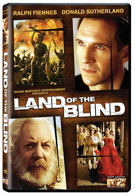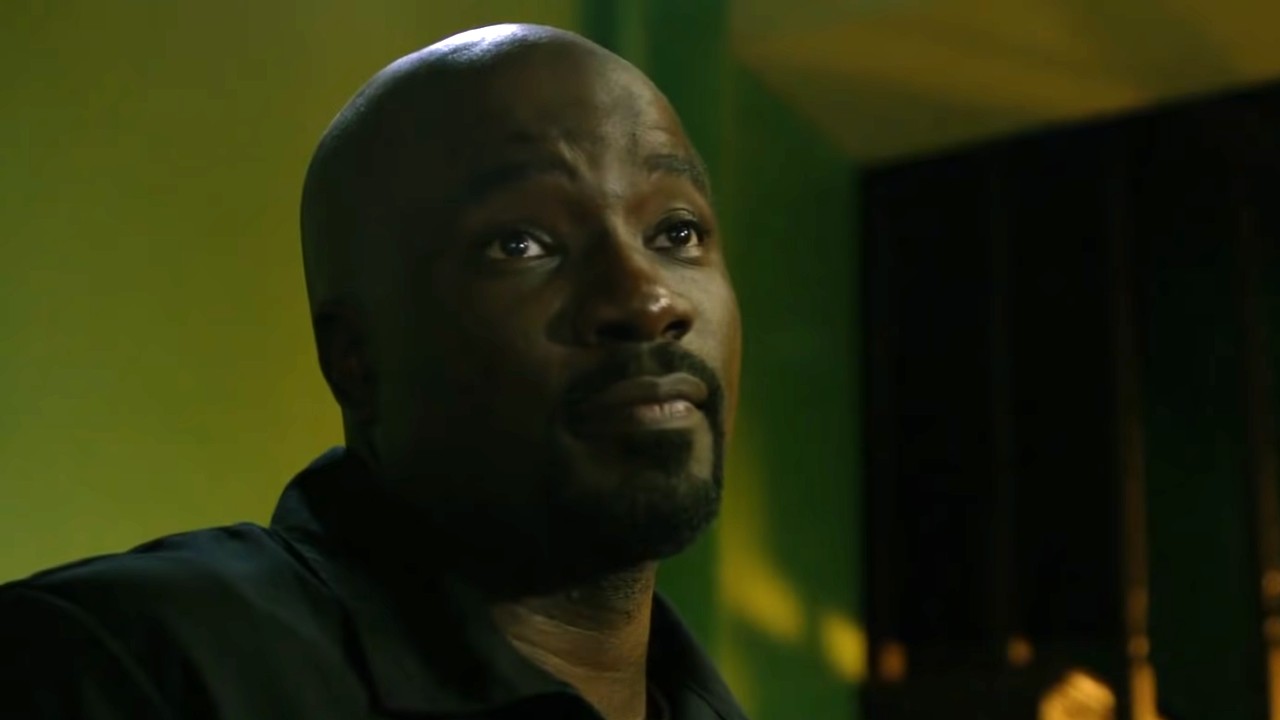History is comprised of revolution after revolution. History books give the broad overview of the important figures involved, regardless of whether their new regime improved what had been there before. What about the little guys though? What about the behind the scenes messenger who tipped off the revolution at the right moment or the guard who changed sides and turned the tide of battle? Frequently history turns a blind eye towards these people, as do the revolutions who were aided through their intervention. After all, how far can a turncoat be trusted? Land of the Blind shows that in a revolution the one-eyed man may not only not be king, but he can quickly find himself a man without any loyalties whatsoever. There are some actors that you can watch in just about anything. Ralph Fiennes is one of those actors for me. There isn’t a movie I haven’t enjoyed him in, from the critically acclaimed Schindler’s List to the less positively received cult film Strange Days. If it wasn’t for Ralph Fiennes’s name, I probably wouldn’t have paid much attention to Land of the Blind, which is quite appropriate because most of the movie even getting made can be attributed to Fiennes’s involvement.
In Land of the Blind, Fiennes plays Joe, a soldier for an unnamed totalitarian government in the middle of a war against domestic terrorists. The President-For-Life, Maximillian II (Tom Hollander), referred to by the populace as Junior, is a weak replacement for his tyrannical father who even the disgruntled public would prefer back in charge. The terrorist organization is striking out in the name of Thorne (Donald Sutherland), a former playwright turned political dissident who begins the film in the captivity of Junior’s prisons. Joe ends up being assigned as one of the guards to harass and feed Thorne, leading to Joe questioning the difference between following a leader blindly and being a patriot.
Make no mistake about it either, Joe is a patriot who wants to do what is best for his country. While his career leads him deeper and deeper into committing his leader’s atrocious directives, Fiennes plays the character in such a way that you can tell he’s always calculating just what his actions are costing the country and himself personally. There is a deeper side to Joe, even if it isn’t in the words, Fiennes knows how to bring that forward brilliantly. This helps later in the film as Joe deals with the consequences of usurping one dictator for another, and no longer being trusted by either side due to his participation in the revolution without committing himself to a side on paper. The eyes are the window to Joe’s soul; when he is committed to his actions he’s still questioning them with his expressions, and when he’s being tortured physically there is an unspoken strength in his character.
If I had any complaint about Land of the Blind it’s that it takes quite a while to build to the point that something is happening – far too long in my original estimation. However the movie isn’t something that should be judged too soon. Everything that appears on screen serves some purpose. In the beginning writer/director Robert Edwards seems excessive in the way he flails nudity and corruption around, however that decadence pays off in the film’s later acts, where the viewer realizes the need for that excess to juxtapose the horror of the new regime. The evils in the film are on far opposite ends and by the end Edwards has communicated that incredibly well. It just takes some time to get there where someone who can’t reserve judgment until the end may make a premature ruling on the movie.
Edwards’ script was enough to sell the project to Fiennes, whose name helped bring the movie into reality. The script’s power should come as no surprise to anyone who sees the movie. Edwards beautifully brings ideas and themes around full circle throughout the story, although half the time one doesn’t even realize he’s done it until the film is over. References frequently come before actual events, not afterwards, causing the viewer to gasp once actual events have taken place, finally aware that what appeared to be normal dialogue five minutes ago was actually deep in meaning. I’m sure subsequent viewings of the movie unfold a far deeper movie than the first one. At the same time, the script uses familiar ideas from similar totalitarian government stories, including more than a passing similarity to Orwell’s 1984 at times, to build a story that is both familiar and new. It’s an amazing accomplishment, and no big surprise that Edwards was a finalist for the Academy of Motion Pictures’ Nichell Fellowships in Screenwriting.
With the help of suburb actors like Fiennes and Sutherland, Edwards’ manages to craft together a film with an interesting statement on terrorism, fascist governments, and the patriots who get caught in between. Even more impressive is the fact that Edwards’ film doesn’t feel like a direct jibe towards any government today. Buildings carry a Russian appearance while uniforms look decidedly American and ombudsman speak French. The end result is a political allegory that delivers a message without placing itself on any political side. For as impressed as I was with Land of the Blind, I find myself almost equally underwhelmed by the DVD for the movie. Independent films frequently carry better DVD releases than mainstream movies, allowing the audience to learn more about the process of making the movie and the director’s ambitions and hopes. Land of the Blind offers very little in that regard.
“Anatomy of a Thriller: Behind the Scenes” is the only featurette included with the movie. It is a ten-minute look at the making of the movie which offers very little actual information. They discuss Edwards being nominated for the Nichell Fellowship and the value of Fiennes’s involvement, but that’s about it. It is sadly little information on what is a rather impressive movie, both in scale and personality. At the very least it would have been nice to see some of the locations the movie was filmed at or hear Edwards talk more about his motivation for making the movie, but nothing is there.
Your Daily Blend of Entertainment News
Other than that featurette, there is the trailer for Land of the Blind and a trailer for The Groomsmen, a trailer for a comedy starring Jay Mohr that seems badly out of place on this disc. Next time I’d prefer to see less Mohr and more of the movie’s stars and creative staff discussing a movie that is in many ways outstanding.

